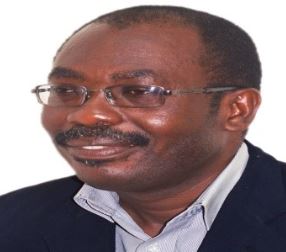
A three-tier teaching model for teaching mathematics in context
Date and time
Location
Q.227, Level 2, Kwong Lee Dow Building
234 Queensberry Street Melbourne Graduate School of Education The University of Melbourne, VIC 3010 AustraliaDescription
Mathematics Education Group Research Seminar Presents:
Professor Ernest Kofi Davis
A three-tier teaching model for teaching mathematics in context
Mathematics is often positioned as being difficult for Ghanaian teachers to teach and pupils to learn. Although literature point to the educational and scientific relevance of many of the socio-cultural practices in the Ghanaian society, many mathematical concepts are taught out of context in schools. In this presentation I will draw on Bishop’s (1988) distinction between Mathematical Enculturation and Mathematical Acculturation, Vygotsky’s (1987) distinction between Everyday and Scientific concepts, and Lancy’s (1983) stages of cognitive development to propose a three-tier teaching model for teaching Ghanaian primary school children and those from other African countries that share similar conditions with Ghana.

Professor Ernest Kofi Davis holds a PhD in Mathematics Education from Monash University in Australia. He is presently an Associate Professor in Mathematics Education and the Dean of School of Educational Development and Outreach, at the College of Education Studies, University of Cape Coast. He has taught mathematics at the various levels of education for many years. His areas of research interest include socio-cultural issues in Mathematics teaching and learning, teaching and learning of Mathematics content and internationalization of Mathematics education. He has won five awards namely Japan International Cooperation Scholarship (JICA), Monash Graduate Scholarship (MGS), Monash International Post Graduate Scholarship (MIPRS), British Academy Visiting Scholar Award to the University of Bath in England and Directorate of Research, Innovation and Consultancy in the University of Cape Coast’s Interdepartmental Research Grant. He has been engaged in a number of international research projects funded by international agencies such as Japan International Cooperation Agency (JICA), the USAID and DANIDA. He has also been engaged in a number of local research projects, with the most recent being an investigation of untrained teachers diploma in basic education trainees’ level of mastery of English, Mathematics and Science contents, a research project which was funded by the Institute of Education, University of Cape Coast in 2015.
Organised by
Socioscientific Issues (SSI) is uniquely positioned as a sociocultural process within a progressive science education framework. This is what makes SSI viewed as “Science-in-Context.” It requires a blend of socioscientific reasoning as well as the exercise of socioscientific perspective taking (SSPT). Surprisingly, SSI also affords an opportunity for serendipity, that may be thought of as the gift of finding, by the combination of chance and wisdom, certain valuable or agreeable things not sought, while in pursuit of something else. From a pedagogical stance, SSI may be thought of as a kind of discovery made because the individual is mentally equipped not to disregard or overlook something new or strange while on the quest for another goal. The aim of this talk is to provide the salient historical and current research that is part of the SSI framework connected to these claims.
Dr. Dana L. Zeidler is the Distinguished University Professor of Science Education at the University of South Florida in Tampa, USA. He has developed an international research program in the field of Science Education centered on Socioscientific Issues, that takes a sociocultural approach to teaching and learning about how moral and ethical issues can be a means to foster the formation of character in the pursuit of scientific literacy. His research has attracted international attention and has been cited approximately 10,350 times both within and external to the community of science education. He is the current Co-Editor of the Journal of Research in Science Teaching and a Past President of NARST: A Worldwide Organization for Improving Science Teaching and Learning through Research.